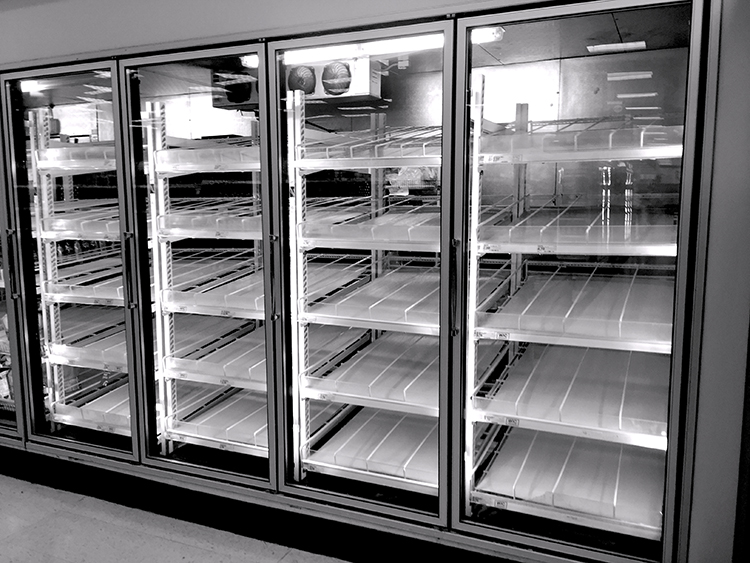
At the start of the COVID-19 pandemic, empty store shelves were a common sight. From toilet paper to diapers, we suddenly found many everyday items to be in short supply.
The dairy aisle was no exception, as labor shortages and supply chain issues prevented milk from getting from the farm to the store. Eventually these problems subsided for the most part, but two and a half years later, we still hear the occasional story or see a post on social media that includes the image of an empty dairy case.
Labor shortages and a need for more truck drivers are two forces behind dairy’s absence in some stores, explained Tim Cooley, chief operating officer for American Dairy Association North East, during a “Your dairy checkoff” podcast. A greater demand for dairy products and retailers in more remote locations add to the delivery challenges.
If someone sees a lack of milk in the dairy case, Cooley advised them to speak up. “We encourage our farmers to bring that to the store’s attention,” he said. He explained that some stores have limited shelf space and may even have more product in storage; they simply might not be aware of the situation and need to be alerted that inventory is low.
When talking to someone at the store level doesn’t seem to help, he encouraged people to take a photograph of the empty dairy case and send it, with the date and location, to the state’s dairy checkoff program. They can work with the store to determine what the roadblocks might be.
Mike Brown Sr., a dairy category manager for Kroger, agreed. He said to ask to speak to a manager or assistant manager if you see a shortage of dairy on the shelf. “Those messages all float to the top,” he noted.
That’s because happy dairy customers are important to a store like Kroger. It’s one of the reasons why Brown said they are very conscious of milk quality and have strict requirements in their fluid milk plants.
Milk is one of those staple items people buy at the store, and Brown noted, “They expect it to be good. If it is not, they will buy it from somewhere else. And where they buy milk, they buy vegetables, they buy meat, and they buy laundry detergent.”
He said that milk is one of the key items they offer in which availability and quality are paramount.
“We have more repeat sales of milk than any other major grocery item in the store,” he shared. “It’s very key to our business.”
It can be very frustrating as a dairy farmer to see limited products on the shelf when the demand is there. Rather than get angry, next time you walk by an empty dairy case, try to let someone know. It sounds like there’s a good chance the store will be glad you did, because dairy sales are important to them, too.

The author is the senior associate editor and covers animal health, dairy housing and equipment, and nutrient management. She grew up on a dairy farm near Plymouth, Wis., and previously served as a University of Wisconsin agricultural extension agent. She received a master’s degree from North Carolina State University and a bachelor’s from the University of Wisconsin-Madison.